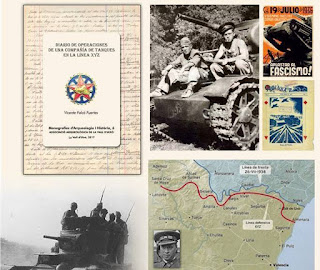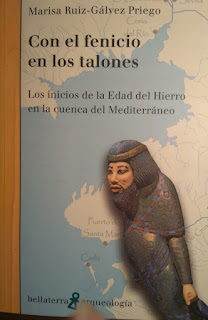EL MAINE Y LA GUERRA DE CUBA / HOW THE BATTLESHIP ¨MAINE¨ WAS DESTROYED, Almirante Rickover
English translation below
No es coincidencia que tras un parón en mi ritmo de lectura, pase a comentar una serie de libros relativos a la Guerra de Cuba, un ominoso precedente a los acontecimientos políticos que vivimos estos días. Y del que se pueden extraer útiles conclusiones.
Ante todo, me ha maravillado de este libro la actitud moral e intelectual del Almirante Rickover, los historiadores Duncan y Wegner y los analistas Price y Hansen. Puestos ante una investigación científica e histórica, acudieron a la misma sin buscar otra cosa que la verdad y no les importó que sus conclusiones pudieran contradecir la “Historia Oficial” o incluso los sentimientos de sus compatriotas.
Ya no es tiempo de sacar opiniones sobre lo que fue y lo que pudo ser. Aquella guerra terminó, los hombres que la lucharon hace tiempo que se fueron y a los que en ella murieron o fueron heridos, en ambos bandos, sólo cabe honrarlos por su sacrificio, voluntario o a regañadientes.
Por eso mismo, la valentía y esfuerzo intelectual del Almirante Rickover y sus colaboradores honra a los Estados Unidos de América, al tiempo que debo agradecerles devuelva completamente el honor a España y a sus Fuerzas Armadas, que no desearon nunca librar aquella guerra, pero que una vez desatada aceptaron el reto desde el valor que da la desesperanza.
Desde el lado español, siempre me llamó la atención la discordancia entre el Gobierno y las élites, conocedoras de la derrota venidera; y el pueblo ignorante de la misma y convencida de su capacidad de rememorar grandes gestas de antaño. Nadie se atrevió a decir la verdad, a sabiendas que el entusiasmo popular le barrería.
Y por otro lado, en las Fuerzas Armadas, me asombra la falta de preparación, de planes estratégicos viables, la distancia entre las misiones encomendadas por la política a la Armada y los medios proporcionados. Todo ello llevó al fatalismo moral que se observa en el Almirante Cervera y la forma absurda en que se dirigieron los buques españoles a su triste final. Como simple “juego de guerra”, sigo evaluando como aficionado a la Historia Militar las posibilidades que hubiera tenido un Ejército preparado para un largo sitio y una Armada lanzada tras una finta a la guerra de corso y bombardeo costero, similar a lo que intentó la Hochsee Flotte al inicio de la I GM con el Scharnhorst, Gneisenau, Emden, … Tal vez el final hubiera sido similar, pero ni tan rápido ni tan humillante, ni con una pérdida total. Lo que hubiera impedido el desarrollo del pesimismo nacional que dio lugar a la Generación del 98, el aislacionismo, la preponderancia de las tesis pre-fascistas y pre-revolucionarias de Joaquín Costa, los nacionalismos periféricos, …
Pero tampoco pidamos peras al olmo. En el Ejército de Tierra español encontramos los mismos fallos de organización, logística, corrupción, inmovilismo que 13 años más tarde repetirán en la Guerra colonial de Marruecos y conducirán al desastre de Annual.
El libro demuestra, de forma razonada y convincente, que el Maine se hundió como consecuencia de la propagación de un fuego espontáneo en la carbonera A16 al pañol de municiones A14 y la explosión interna de los 5.900 kgs de pólvora almacenados en la misma. Siendo imposible que la deflagración externa de explosivos causara los daños producidos.
Not a surprise at all should be that after a break, I'm back with books concerning 1898 Spanish-American war. This piece of History is an ominous advance of actual spanish politics. And we may extract useful information out of it.
First of all, I was amazed while reading this book by the moral and intellectual attitude of Admiral Rickover, historians Duncan and Wegner and analysts Price and Hansen. Confronted with a scientific and historical research, they approached it without looking for anything but truth and did not care that their findings might contradict the "Official Story" or even feelings of their countrymen.
It is no longer time to give opinions on what was and what could be. That war ended, the men who fought it are long gone and those killed or wounded on both sides, we can only honor them for their sacrifice, even if that was voluntary or reluctantly done.
For this reason, the courage and intellectual efforts of Admiral Rickover and his colleagues honor the United States, while I thank them for giving back Spain the truth. And also to Spanish Armed Forces, as they never wanted to fight that war, but once unleashed they accepted the challenge with the courage of despair.
From the Spanish side, I am always struck by the discrepancy between the government and elites, aware of the coming defeat, and the people ignorant of it and convinced of their ability to recall great old deeds. No one dared to tell the truth, knowing that popular enthusiasm would shallow them.
On the other hand, in the Armed Forces, it amazes me the lack of preparation, viable strategic plans, the distance between the political missions for the Navy and the facilities provided. This led to the kind of fatalism that is observed in Admiral Cervera and the absurd way in which the Spanish ships went to their sad end. Sometimes I wonder, just a simple "war game", evaluating how many possibilities would have had an army prepared for a long siege and a Navy launched a feint and start privateering war against commerce lines and shore bombardments, similar to what was attempted by Hochsee Flotte at the beginning of World War I with the Scharnhorst, Gneisenau, Emden, ... maybe the results would have been similar, but not so fast or so humiliating, or a total loss. What could have prevented the development of national pessimism that led to the 98´s Generation, isolationism, the preponderance of pre-fascist & pre-revolutionary Joaquín Costa´s thesis, the splittering of internal nationalisms ...
But do not ask the impossible. In the Spanish Army I found the same faults of organization, logistics, corruption, stagnation that 13 years later were repeated in Morocco´s colonial war and led to disaster at Annual.
The book shows, in a reasoned and convincing manner, that the Maine sank as a result of the spread of a spontaneous fire in the coal A16 magazine towards A14 ammunition locker, leading to the internal explosion of 5900 kgs of gunpowder stored in it. Being impossible that an external explosion caused the damage.




Comentarios
Publicar un comentario